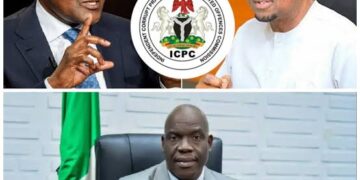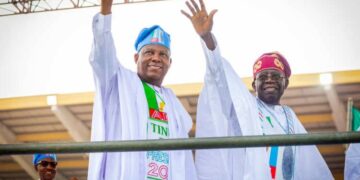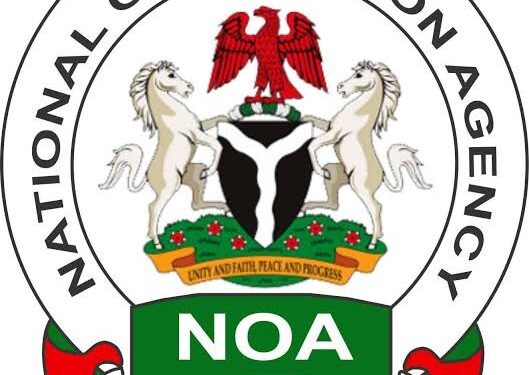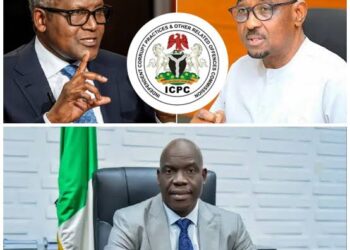In a democracy, the neutrality of government establishments is both a constitutional mandate and a moral necessity. It is the foundation upon which public trust in governance rests. Yet, when government agencies or publicly funded institutions begin to openly campaign for political parties, the line between the state and partisan interest becomes dangerously blurred. Recently, the sight of a signboard sponsored by a government bureau urging citizens to register with a particular political party is a telling symptom of how far the moral compass of public service has drifted.
A Violation of Constitutional Principles
The Constitution of the Federal Republic of Nigeria (1999, as amended) clearly establishes the separation between state institutions and political partisanship. Section 15(5) enjoins the state to “abolish all corrupt practices and abuse of power.” When a government bureau—funded by taxpayers and meant to serve all citizens regardless of political affiliation—deploys public resources to advance a party’s interest, it constitutes an abuse of both power and office.
Furthermore, Section 14(2)(b) provides that “the security and welfare of the people shall be the primary purpose of government.” Nowhere does the Constitution authorize government agencies to serve as propaganda arms of political parties. Government establishments are custodians of the collective interest, not instruments of partisan advancement. To misuse them for political purposes is to pervert their essence and betray the public trust.
Even more explicitly, the Code of Conduct for Public Officers in the Fifth Schedule of the Constitution forbids public officials from engaging in political activities that compromise the impartiality of their offices. Section 23 emphasizes integrity, discipline, and loyalty to the nation, not to any political party. Hence, a government bureau sponsoring a partisan advert is not only unethical but constitutionally indefensible.
The Moral Burden of Misplaced Loyalty
Beyond constitutional breach lies a deeper moral failing. The public service in any democratic society is supposed to be apolitical—a body of men and women who serve the government of the day but owe allegiance to the state. When that sacred line is crossed, the service becomes contaminated by political sycophancy and self-interest.
Using government resources to campaign for a political party is, in moral terms, a theft of the people’s trust. It reduces the noble calling of governance to a partisan enterprise and signals to citizens that loyalty to a party, not competence or patriotism, is the key to advancement. This corrodes civic morality, fuels division, and weakens faith in democratic institutions.
As Scripture aptly puts it in Proverbs 29:2 (AMP): “When the righteous are in authority, the people rejoice; But when a wicked man rules, the people groan.” When public agencies forsake righteousness—truth, fairness, and accountability—for political expediency, the result is public groaning: disillusionment, disenchantment, and decay of values.
A Threat to Democratic Fairness
The Nigerian democratic experiment, though young, has survived on the delicate balance between political competition and institutional neutrality. The moment that balance tilts—when a government bureau uses public resources to advertise or campaign for a political party—our democracy slides toward authoritarian partisanship.
This act also undermines the Independent National Electoral Commission (INEC)’s constitutional responsibility to ensure free and fair elections. How can elections be fair when government institutions openly endorse or promote a particular political party? It erodes the level playing field and gives undue advantage to the ruling class, turning democracy into an exercise in manipulation rather than choice.
A Call for Accountability and Action
The time has come for Nigerians to insist on integrity in public service. Government agencies exist to serve all citizens—Christians, Muslims, men, women, youths, old, rich, and poor—irrespective of political leanings. Sponsoring an advert asking citizens to register with a specific political party is an affront to that universal responsibility.
The federal and state governments, through the Office of the Head of Civil Service and the Bureau of Public Service Reforms, must investigate such misuse of public institutions for partisan purposes. Those responsible should be sanctioned to deter future occurrences. The National Orientation Agency (NOA), which is tasked with promoting civic values and national unity, must take the lead in calling out and removing such misleading adverts from public spaces.
Time to Share the Grace?
The phrase “Is it time to share the grace?” is often used at the close of a solemn gathering—an acknowledgment that the purpose has been served and it is time to depart. When government establishments abandon their neutral mandate and begin to campaign for political parties, it may well be time to “share the grace” on the moral legitimacy of the state itself.
If the institutions meant to unite us become instruments of division, if the agencies funded by all Nigerians begin to serve a few, and if the public trust is replaced with political opportunism—then the very essence of governance is lost.
It is time, therefore, for the government to pull down such adverts, reaffirm the neutrality of public service, and restore faith in the integrity of state institutions. For democracy thrives not where parties rule, but where the people trust that the state belongs to all.



































